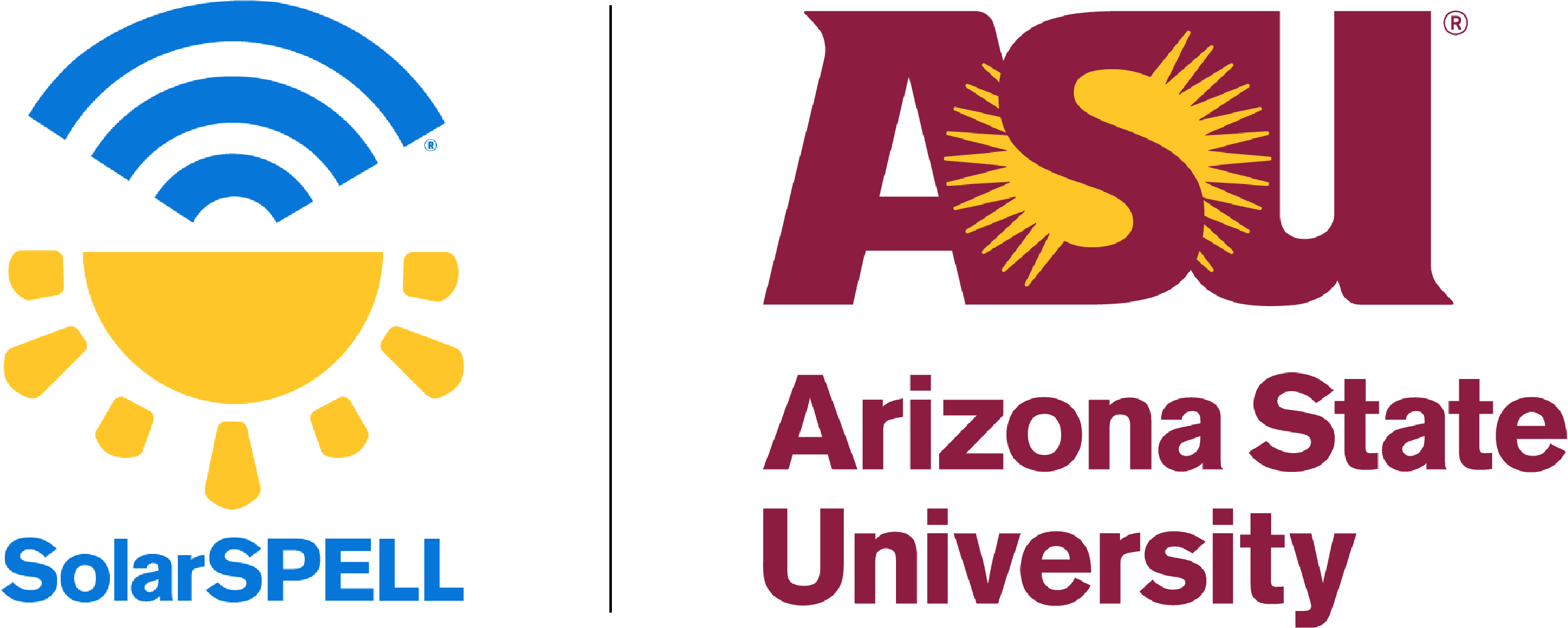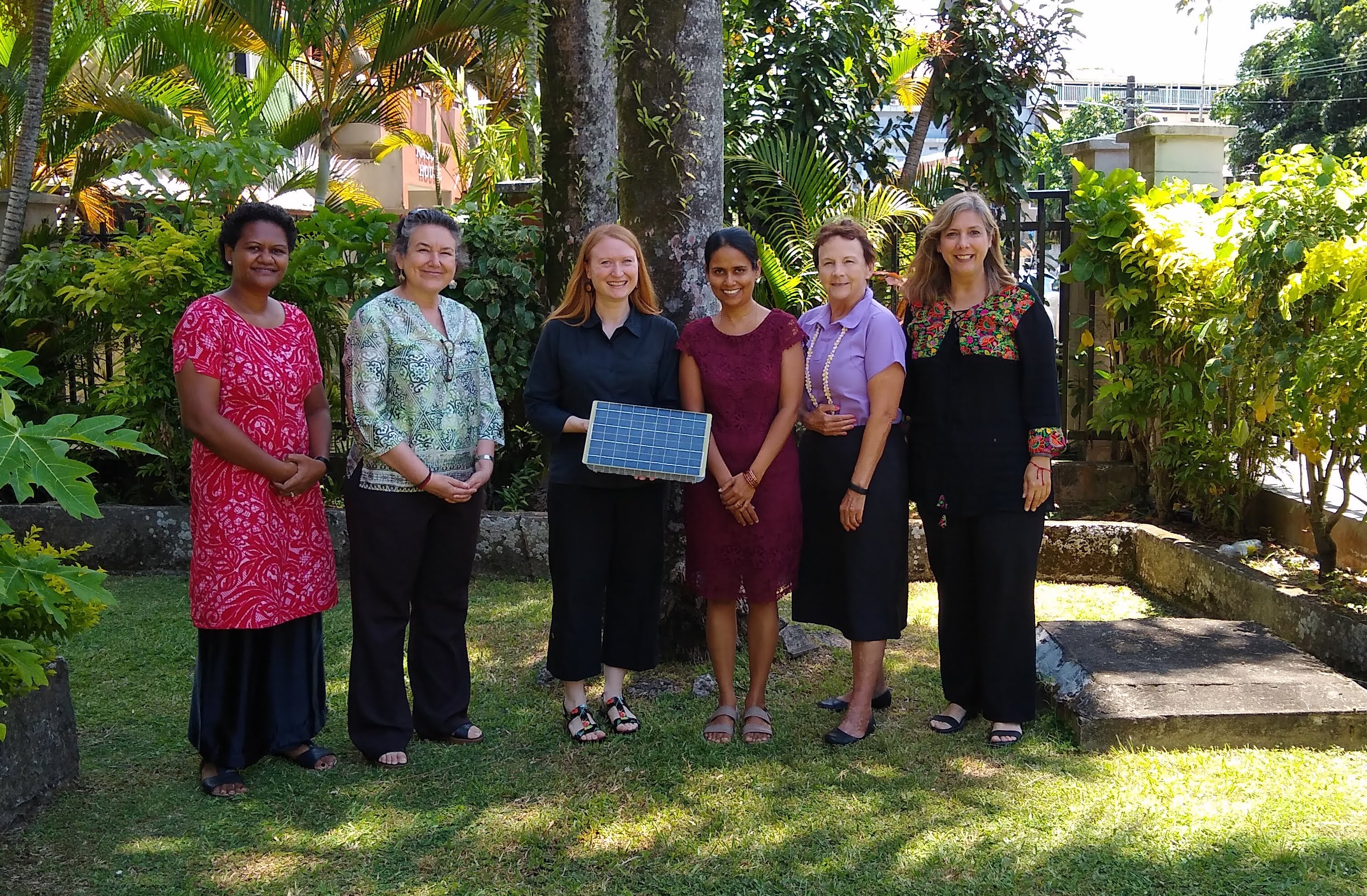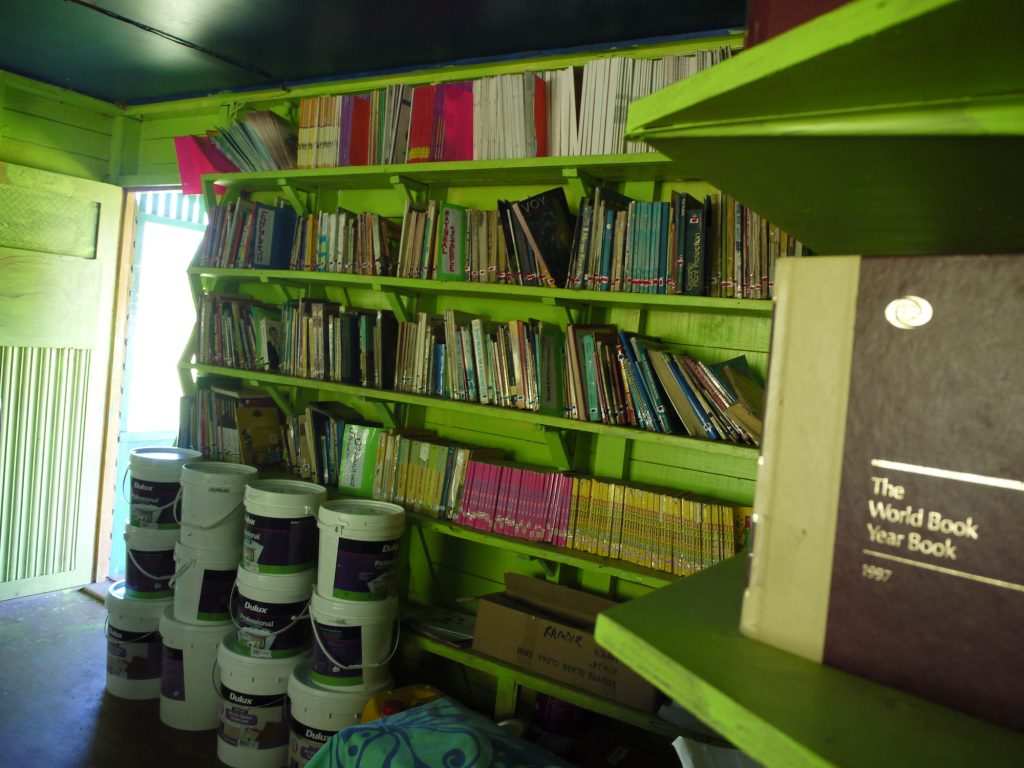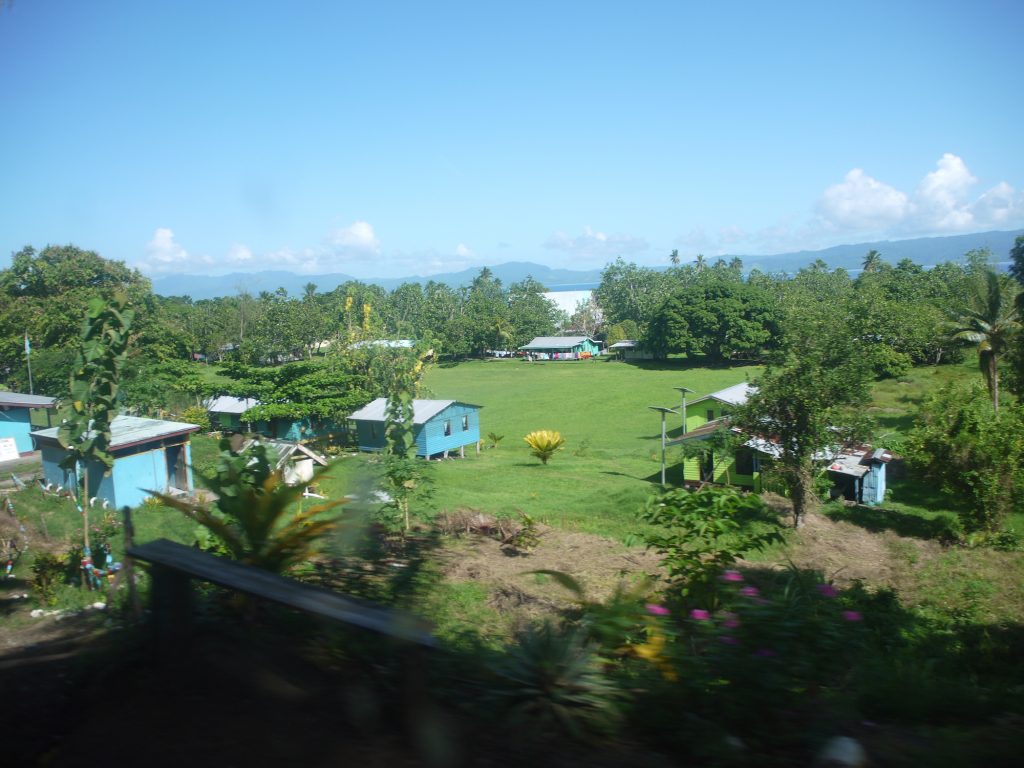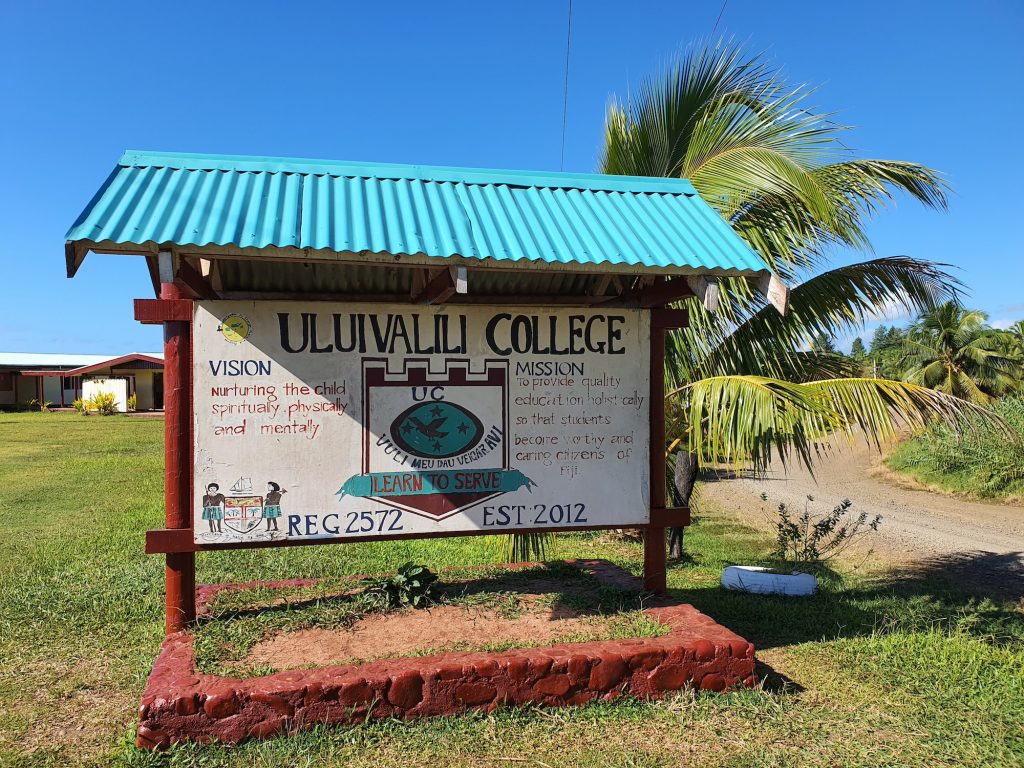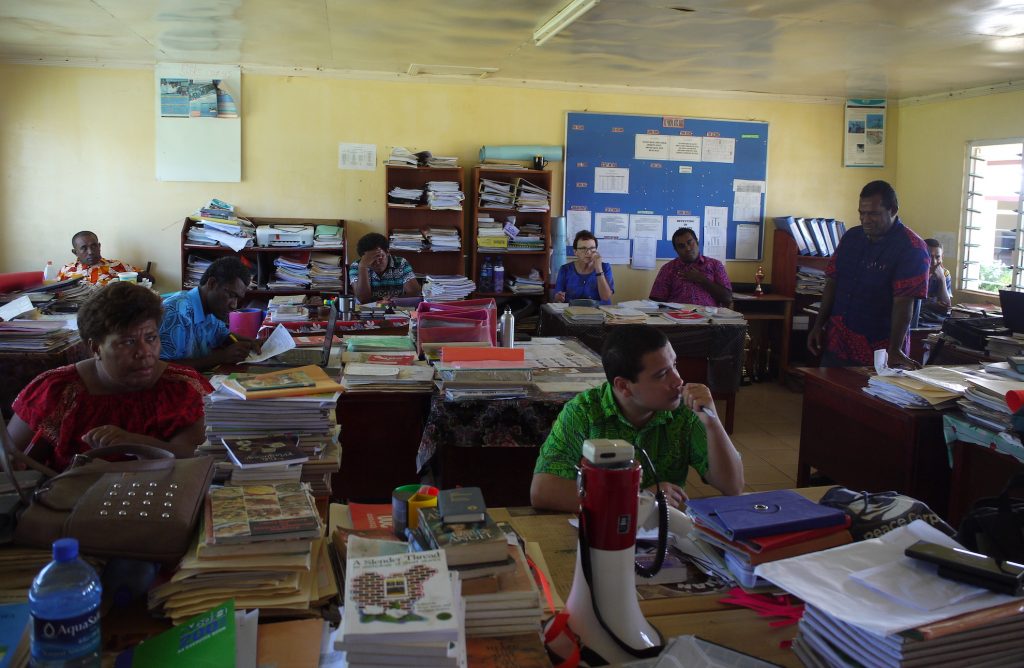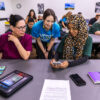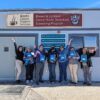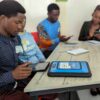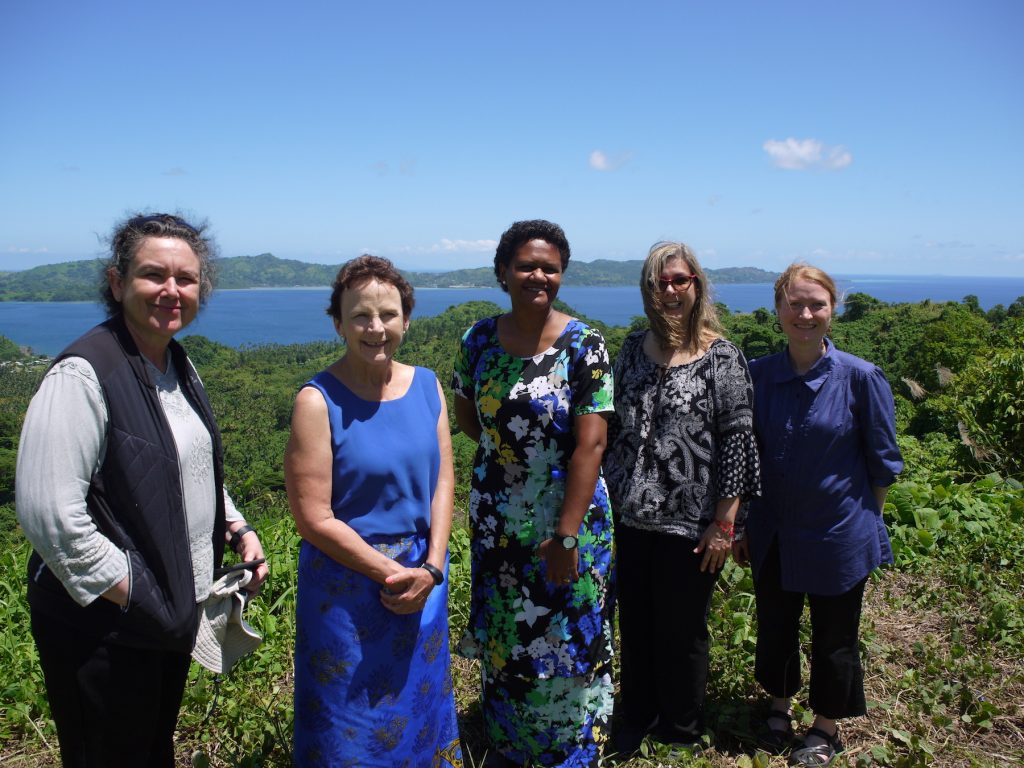 In February 2020, the SolarSPELL team traveled to Fiji to carry out a 6-month impact evaluation visit at schools that had received SolarSPELL digital libraries and training, back in August of 2019. The team was able to visit all 6 of the schools on the island of Vanua Levu that had received SolarSPELLs, and to conduct interviews with both local teachers and Peace Corps volunteers at each school.
In February 2020, the SolarSPELL team traveled to Fiji to carry out a 6-month impact evaluation visit at schools that had received SolarSPELL digital libraries and training, back in August of 2019. The team was able to visit all 6 of the schools on the island of Vanua Levu that had received SolarSPELLs, and to conduct interviews with both local teachers and Peace Corps volunteers at each school.
The first school visited was Natewa District School. The team got to see the school’s brand new building, which housed both a new library and room for a new computer lab (when the computers would arrive). We were blown away by the news that the 8th grade teacher was tremendously excited to share with us (and indeed all of the teachers were thrilled to share with us) about this school’s 8th grade students’ test scores:
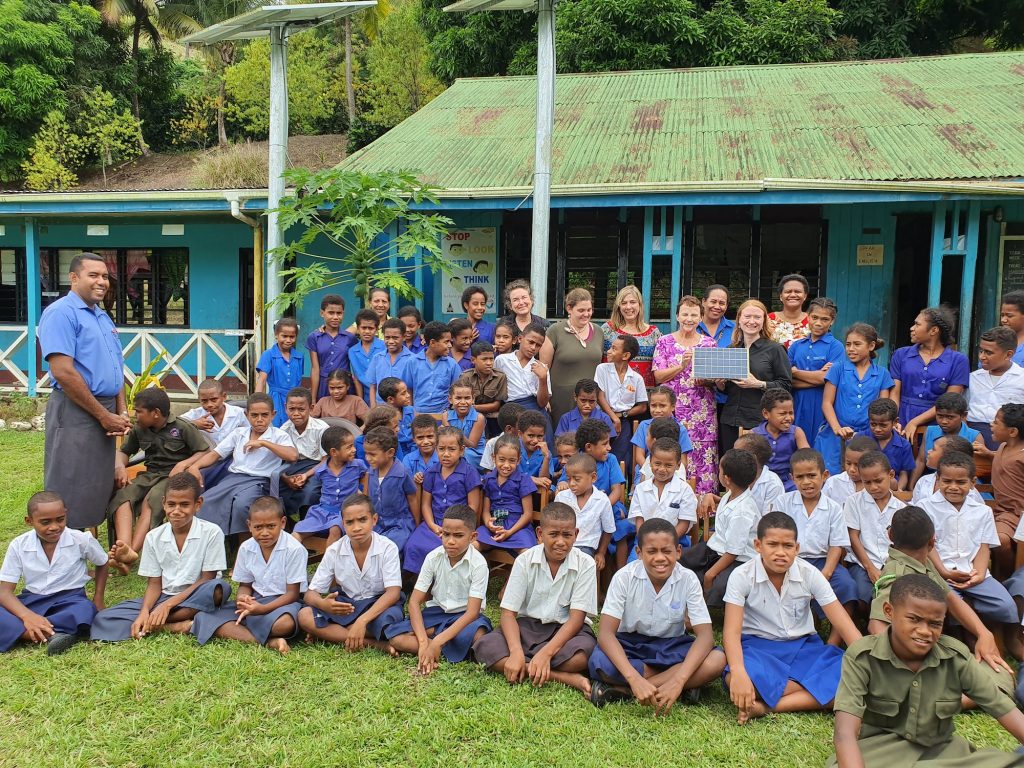 “Last year, at the end of the school year, we had external exams, and the result we got was 100% positive. My school, when I first came, for the past 3 years, my school has been scoring like 29% for the overall and the second year we managed to move it up to 54%. But last year we got 100%. Thanks to the SolarSPELL, my children have access to the world through that.”
“Last year, at the end of the school year, we had external exams, and the result we got was 100% positive. My school, when I first came, for the past 3 years, my school has been scoring like 29% for the overall and the second year we managed to move it up to 54%. But last year we got 100%. Thanks to the SolarSPELL, my children have access to the world through that.”
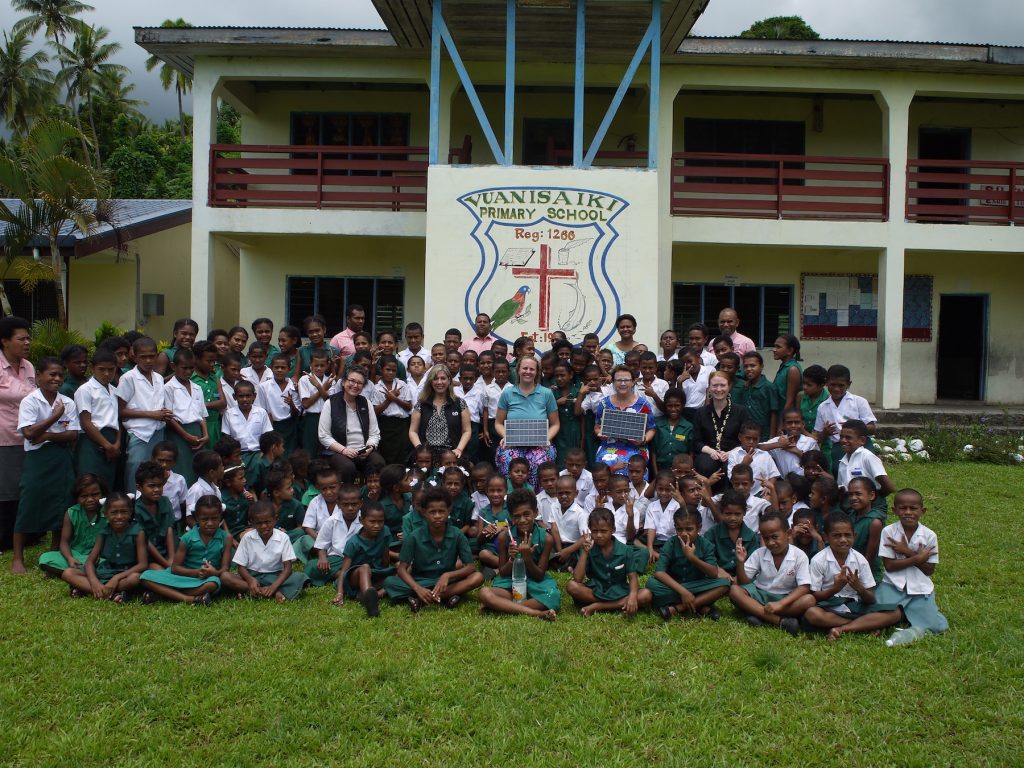 The second school visited was Vunisaiki Primary school (above), where (among other things) we learned that all rural schools in Vanua Levu, in fact, had tablets provided to them from a previous Ministry of Education initiative, that could be used with the SolarSPELL. We took advantage of this opportunity to troubleshoot how to actually make the tablets work (as numerous settings needed changing).
The second school visited was Vunisaiki Primary school (above), where (among other things) we learned that all rural schools in Vanua Levu, in fact, had tablets provided to them from a previous Ministry of Education initiative, that could be used with the SolarSPELL. We took advantage of this opportunity to troubleshoot how to actually make the tablets work (as numerous settings needed changing).
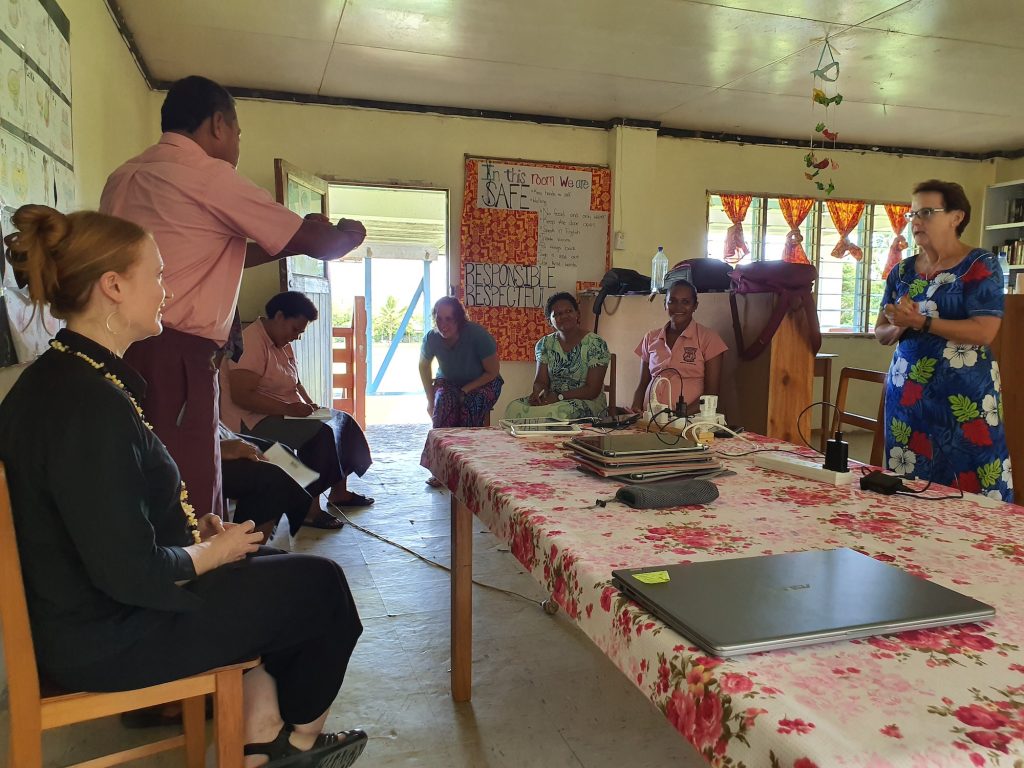 The only secondary school the team had the opportunity to visit was our third school, Uluivalili College, where we were delighted to hear how much these teachers had been using the SolarSPELL during the third trimester of the school year the previous year. All of the teachers at Uluivalili were familiar with the SolarSPELL and how to use it, and many shared with us some of their favorite resources on the library. The three pictures below are from Uluivalili College.
The only secondary school the team had the opportunity to visit was our third school, Uluivalili College, where we were delighted to hear how much these teachers had been using the SolarSPELL during the third trimester of the school year the previous year. All of the teachers at Uluivalili were familiar with the SolarSPELL and how to use it, and many shared with us some of their favorite resources on the library. The three pictures below are from Uluivalili College.
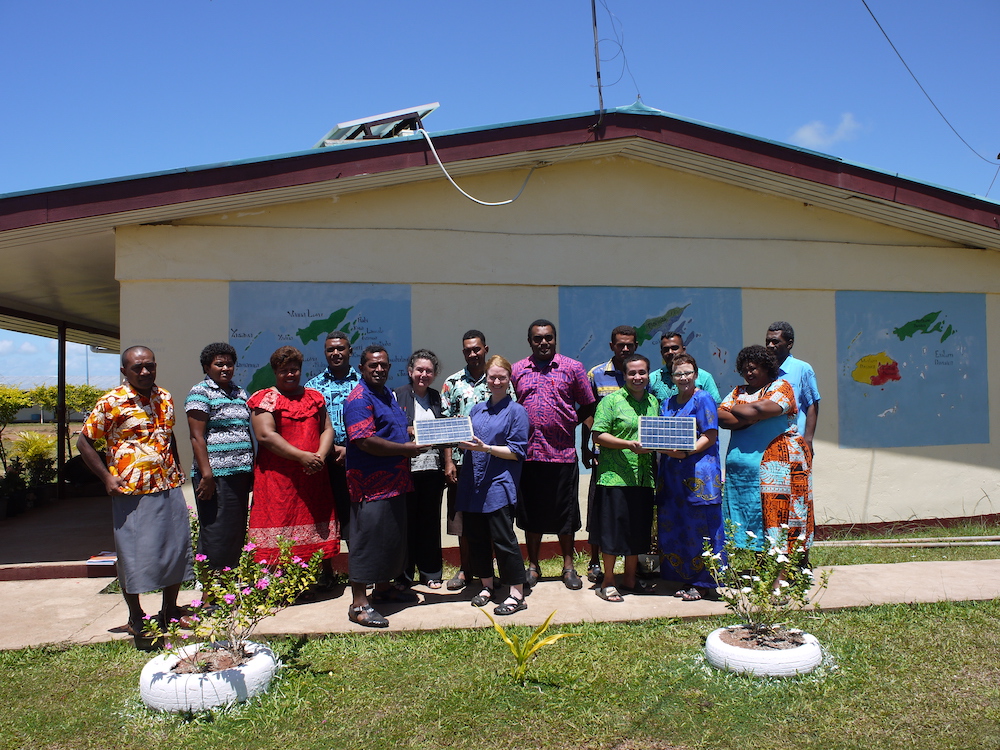 Vunidawa Primary was our fourth school visited, which had not just a beautiful view out over the ocean! But also a beautiful (physical) library that the SolarSPELL could serve to complement. We were able to spend quite a bit of time with the teachers at this school.
Vunidawa Primary was our fourth school visited, which had not just a beautiful view out over the ocean! But also a beautiful (physical) library that the SolarSPELL could serve to complement. We were able to spend quite a bit of time with the teachers at this school.
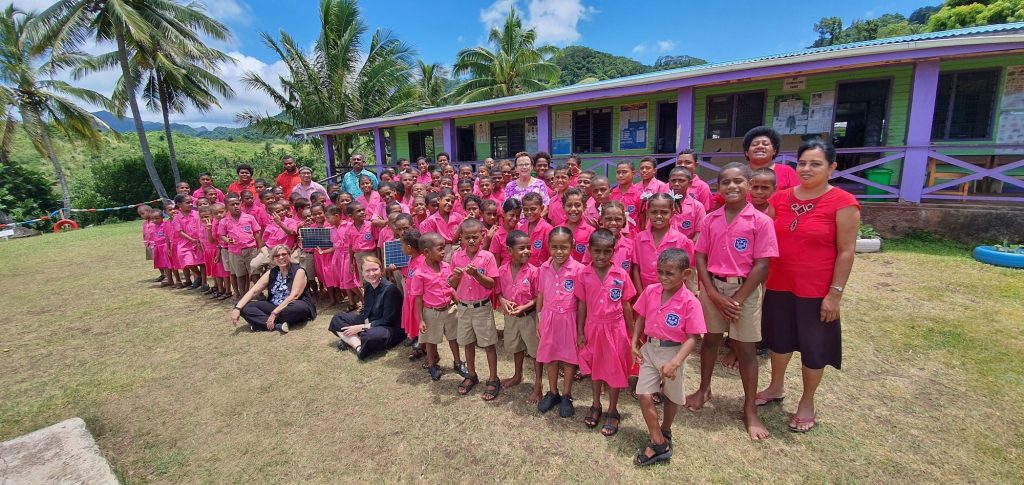
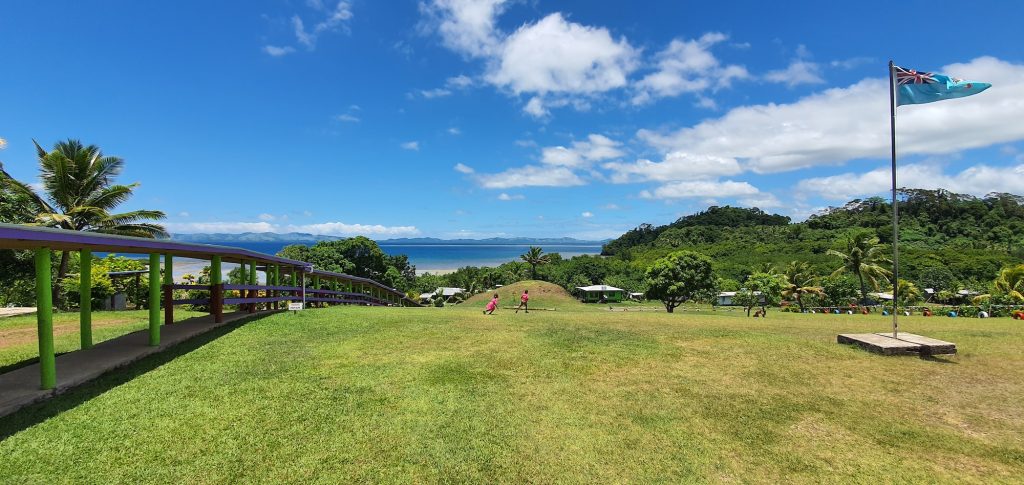 St. Mary’s Primary school in Labasa, pictured below, was our fifth school visited, and by far the largest. We were able to meet with just a handful of the teachers from this school, but it was a nicely representative sample of those using the SolarSPELL.
St. Mary’s Primary school in Labasa, pictured below, was our fifth school visited, and by far the largest. We were able to meet with just a handful of the teachers from this school, but it was a nicely representative sample of those using the SolarSPELL.
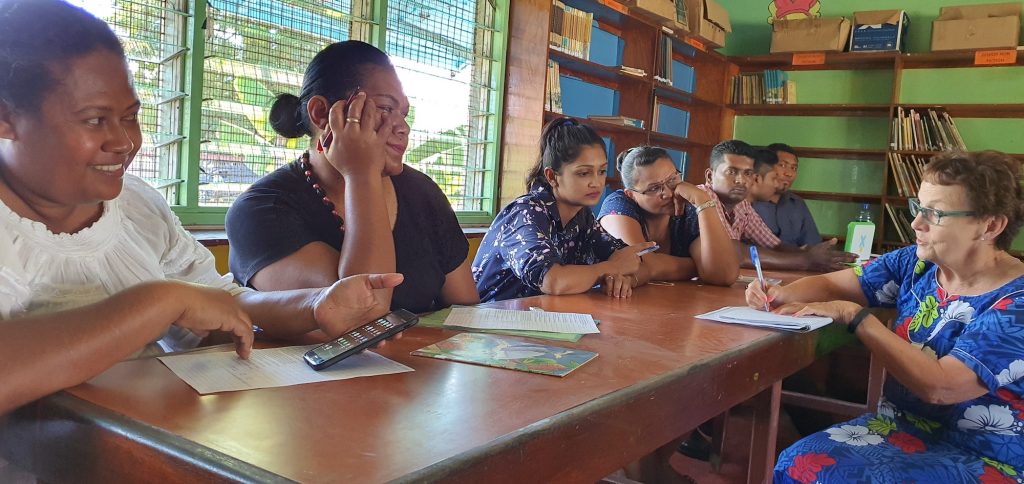
As a true highlight, one of the 8th grade teachers offered to bring in some of his students, to demonstrate their advanced knowledge of how to use the SolarSPELL for searching and doing research, and these students’ skill levels blew us away!
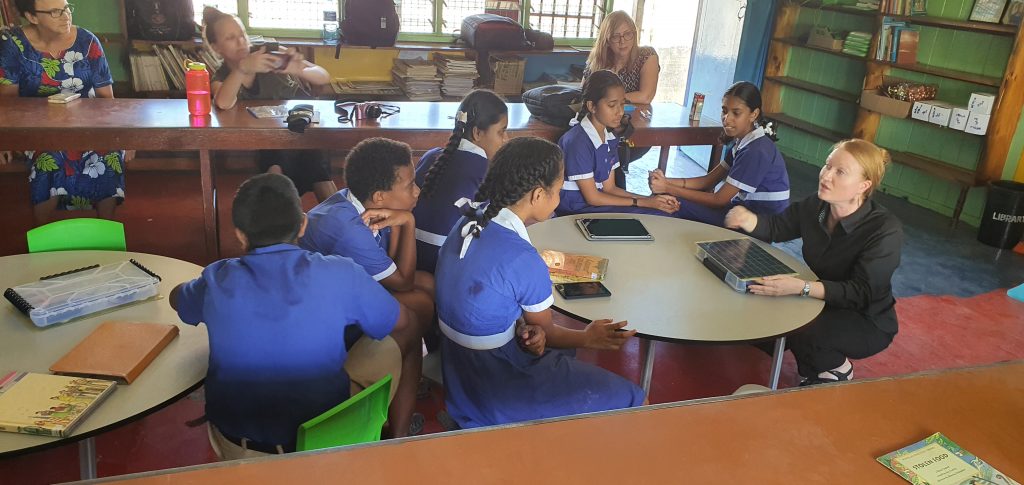
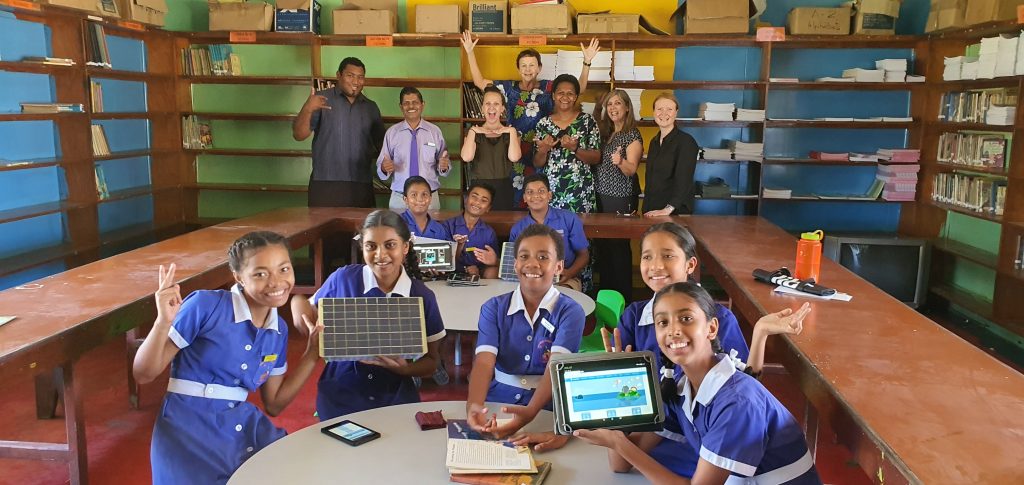 Our sixth and final school visit was to Korokadi Primary, which contrasted with the previous school we had visited by dint of both its small size and the degree of this school’s remoteness. One thing that truly impressed the team was that it seemed to be because of the remoteness (no connectivity at all in this location) that the SolarSPELL library seemed to be so popular and valuable. The teachers using it cited numerous different topic-areas that were popular with the students in their classes.
Our sixth and final school visit was to Korokadi Primary, which contrasted with the previous school we had visited by dint of both its small size and the degree of this school’s remoteness. One thing that truly impressed the team was that it seemed to be because of the remoteness (no connectivity at all in this location) that the SolarSPELL library seemed to be so popular and valuable. The teachers using it cited numerous different topic-areas that were popular with the students in their classes.
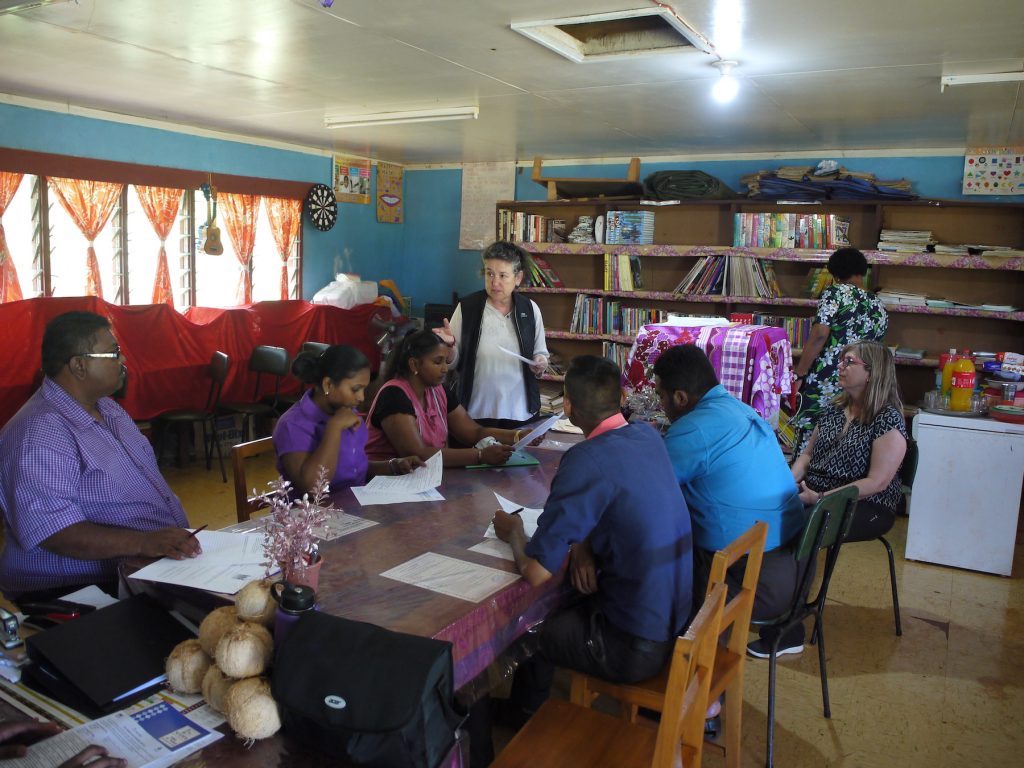
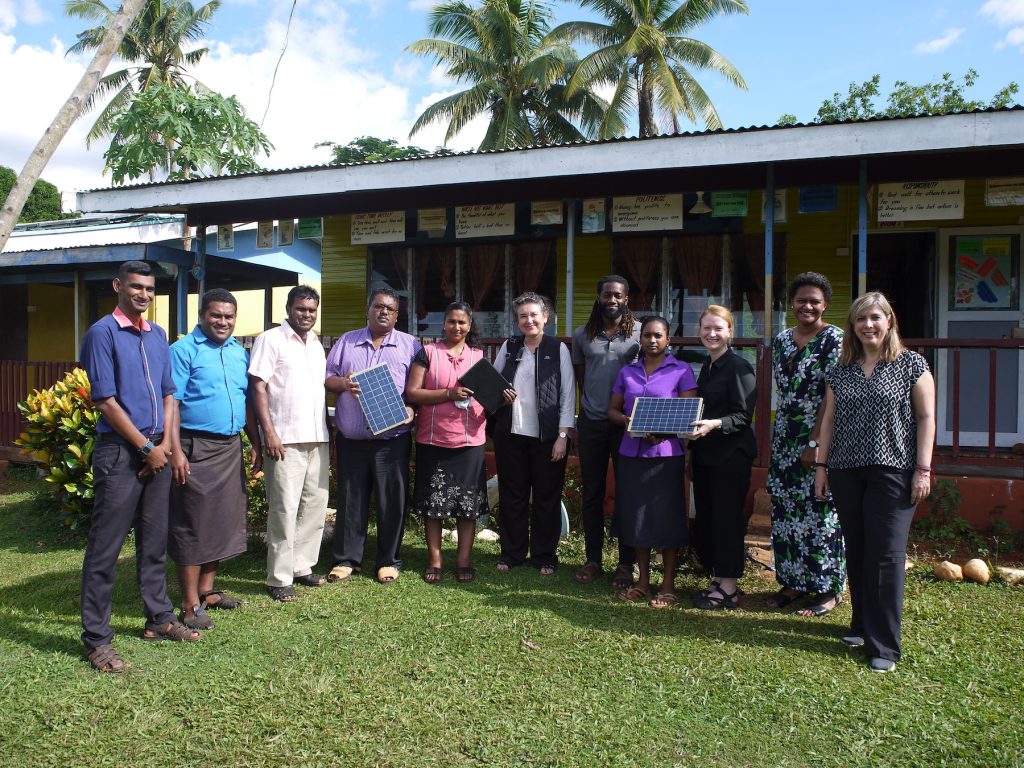 After these school visits took place, the team traveled to the island of Viti Levu and to the capital city of Suva, for meetings with the Ministry of Education and other potential partners and/or stakeholders. One particular highlight was the team’s meeting with the Acting Secretary of the Ministry of Education, Susan Kiran, and we discussed SolarSPELL continuing to work and move forward in Fiji.
After these school visits took place, the team traveled to the island of Viti Levu and to the capital city of Suva, for meetings with the Ministry of Education and other potential partners and/or stakeholders. One particular highlight was the team’s meeting with the Acting Secretary of the Ministry of Education, Susan Kiran, and we discussed SolarSPELL continuing to work and move forward in Fiji.
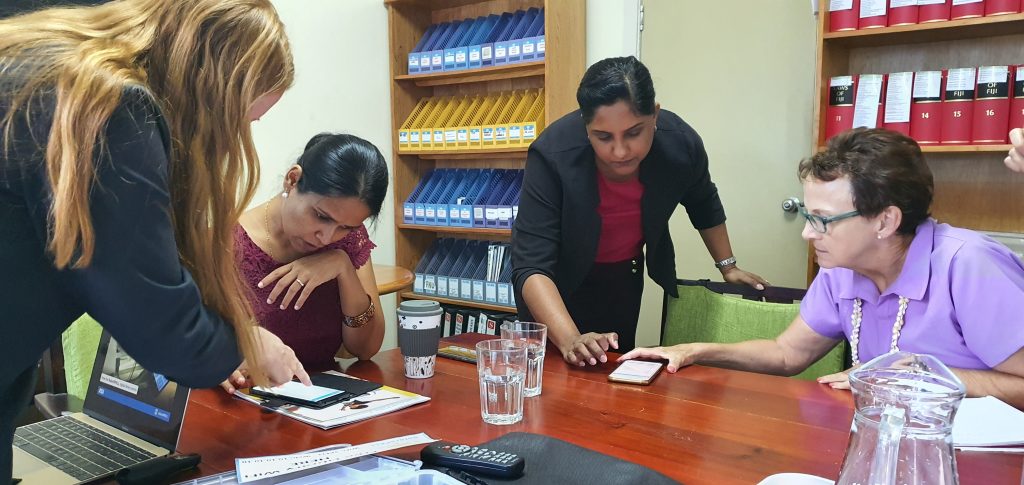 The team also had the opportunity to meet with the Director of Curriculum at the Ministry of Education and the SolarSPELL team looks forward to working with this group, moving forward, as we continue to improve the contents of the library.
The team also had the opportunity to meet with the Director of Curriculum at the Ministry of Education and the SolarSPELL team looks forward to working with this group, moving forward, as we continue to improve the contents of the library.
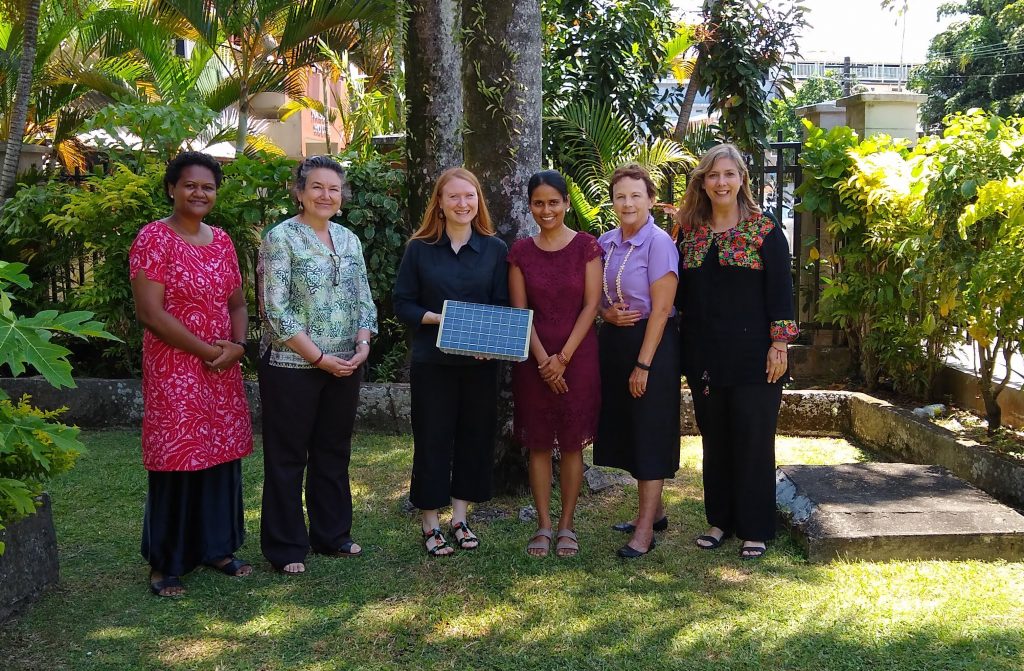 The research team consisted of: Dr. Laura Hosman from Arizona State University, Drs. Marcela Georgina Gómez Zermeño and Lorena Alemàn de la Garza, from Tecnológico de Monterrey in Mexico, Martha Wight from Peace Corps Fiji and Fiji Ministry of Education, and Tulia Cokanawai from the Fiji Ministry of Education. This research trip was made possible through a grant from the Global Consortium for Sustainability Outcomes. We would especially like to thank Martha Wight, who organized the logistics for bulk of this entire visit, as well as each individual meeting, and Marcela Gomez for generously sharing her pictures from the trip!
The research team consisted of: Dr. Laura Hosman from Arizona State University, Drs. Marcela Georgina Gómez Zermeño and Lorena Alemàn de la Garza, from Tecnológico de Monterrey in Mexico, Martha Wight from Peace Corps Fiji and Fiji Ministry of Education, and Tulia Cokanawai from the Fiji Ministry of Education. This research trip was made possible through a grant from the Global Consortium for Sustainability Outcomes. We would especially like to thank Martha Wight, who organized the logistics for bulk of this entire visit, as well as each individual meeting, and Marcela Gomez for generously sharing her pictures from the trip!
